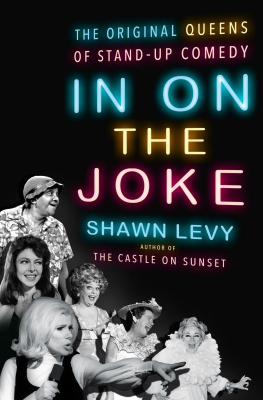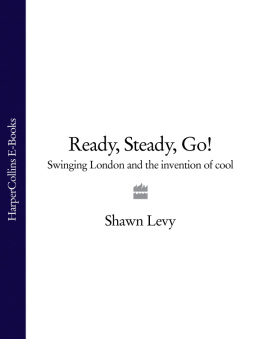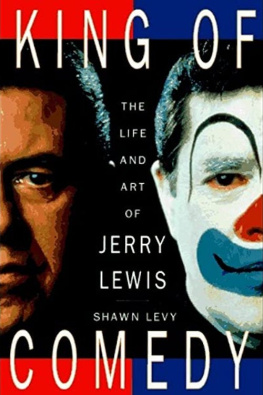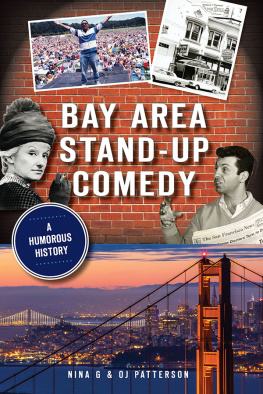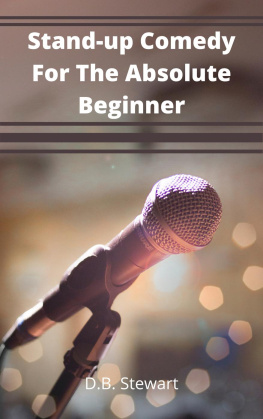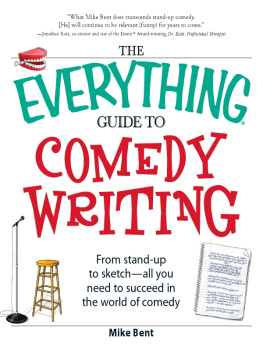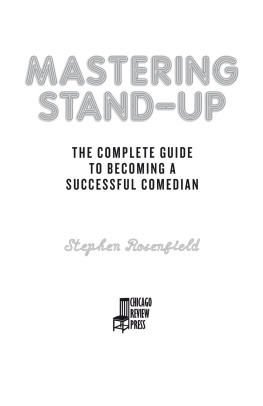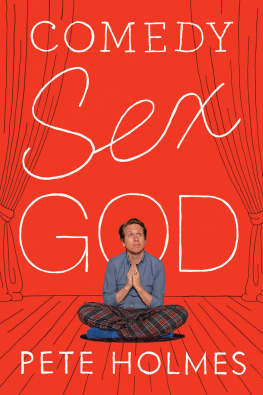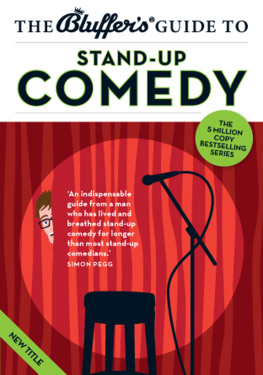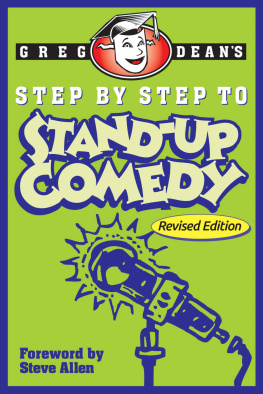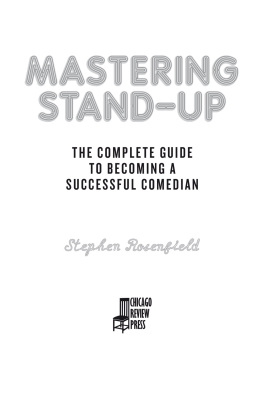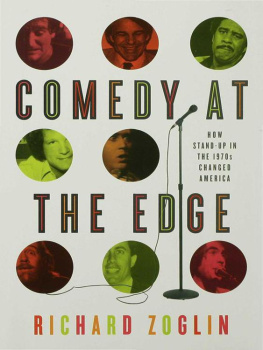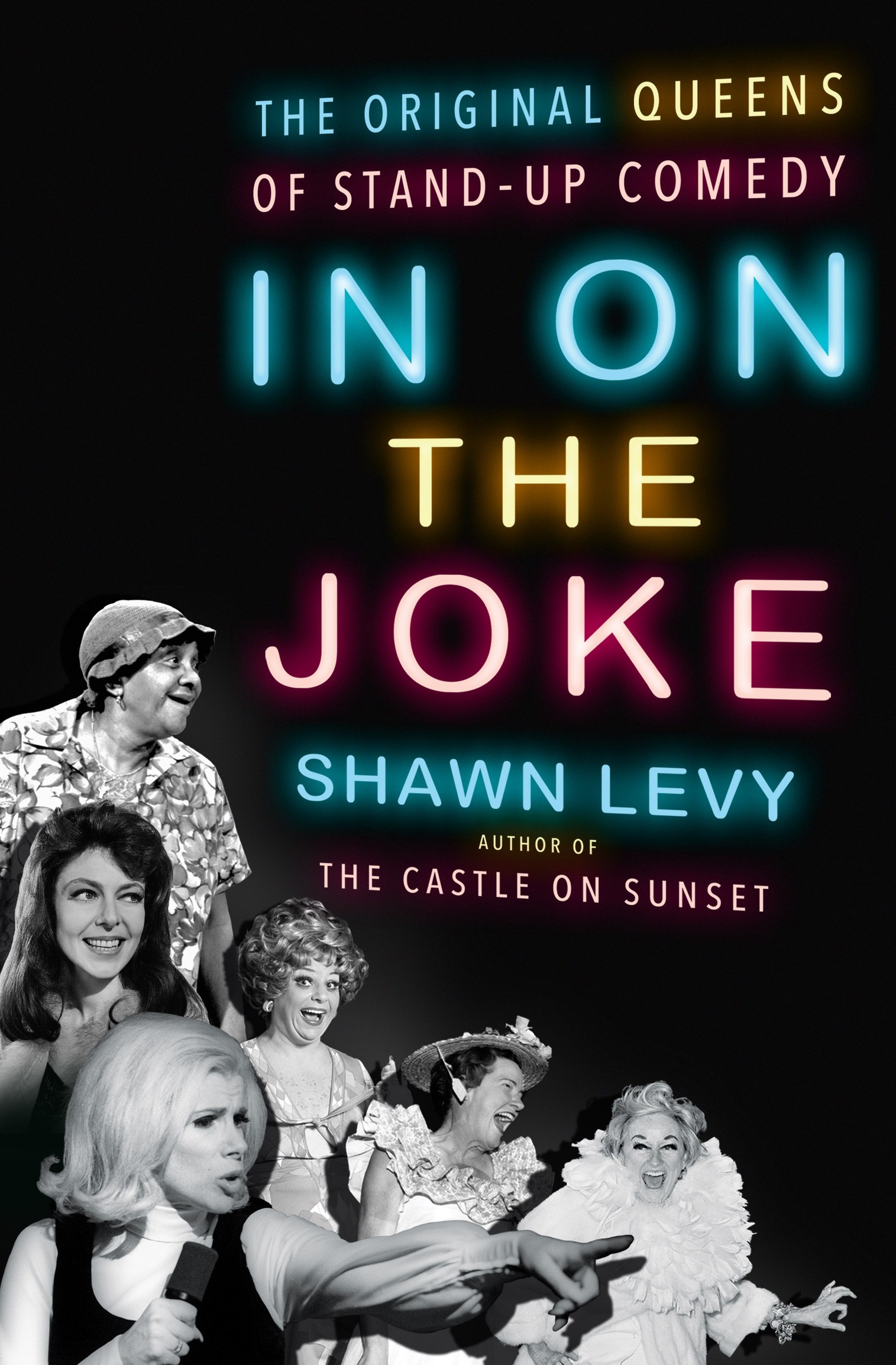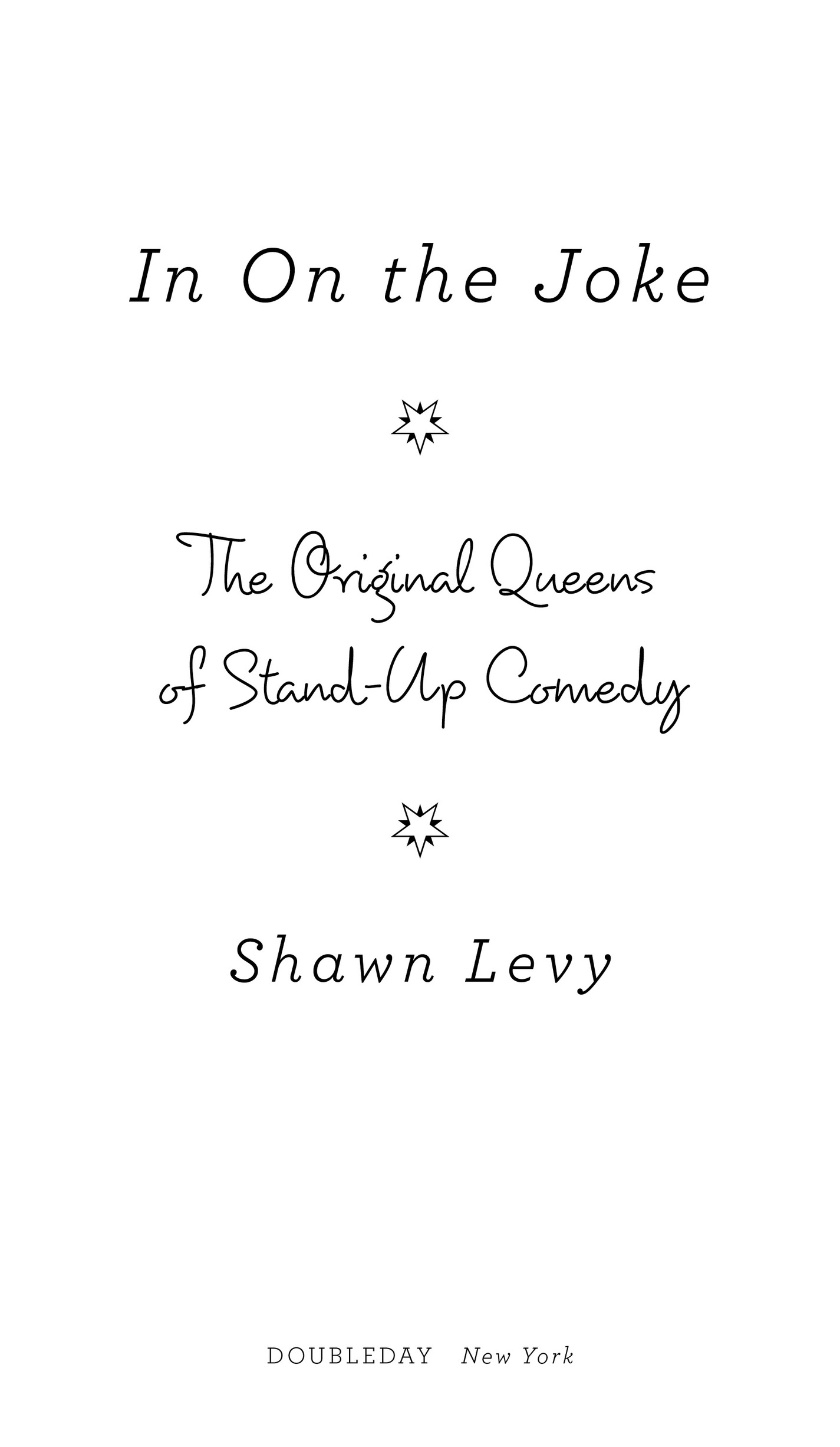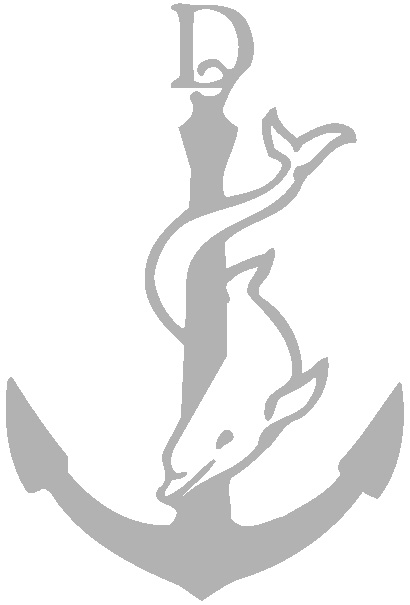All rights reserved. Published in the United States by Doubleday, a division of Penguin Random House LLC, New York, and distributed in Canada by Penguin Random House Canada Limited, Toronto.
doubleday and the portrayal of an anchor with a dolphin are registered trademarks of Penguin Random House LLC.
Cover images (clockwise from upper left): Jackie Moms Mabley, Michael Ochs Archives; Totie Fields by Martin Mills; Minnie Pearl, Michael Ochs Archives; Phyllis Diller by George Stroud / Daily Express; Joan Rivers by I. C. Rapoport; Elaine May, Archive Photos / Moviepix. All Getty Images.
Cover design by Michael J. Windsor
Names: Levy, Shawn, author.
Title: In on the joke: the original queens of stand-up comedy / Shawn Levy.
Description: First edition. | New York: Doubleday, [2022]. | Includes bibliographical references and index.
Identifiers: LCCN 2021013200 (print) | LCCN 2021013201 (ebook) | ISBN 9780385545785 (hardcover) | ISBN 9781984899279 (trade paperback) | ISBN 9780385545792 (ebook)
Subjects: LCSH: Women comediansUnited StatesBiography. | Stand-up comedyUnited StatesHistory.
Classification: LCC PN2286.8 .L48 2022 (print) | LCC PN2286.8 (ebook) | DDC 792.702/80925 [B]dc23
For Mickie and Jenny and Mary and Lulu and Paula and Fanny and Alina and Amy and Shannon
Authors Note
For years, the most important women in my lifemy daughter, Paula, and my partner, Shannonhave reminded me that the books Ive written have been a manly lot, and theyve cajoled me, in their ways, to write about a woman. And for some time, Ive tried to make that happen, without ever quite hitting on the right idea at the right time. The concept for this book was, finally, both, and I am so grateful to have an opportunity to show the women who matter most to me that I hear and see them.
There are already several worthy histories of comedy and of women in comedy that deal, at least in part, with some of the figures and some of the era Ive written about. (I especially recommend We Killed by Yael Kohen, Seriously Funny by Gerald Nachman, and The Comedians by Kliph Nesteroff.) But none hits exactly the target at which Ive aimed: the rise of women as stand-up comedy stars during the period between, say, World War II and 1970. As valuable and instructive as I found these and several other books on similar subjects, I recognized a gap in the bookshelf, in the historical record, that I could fill.
But, still: Why, in this age of #MeToo and #TimesUp, should a man take on the task of writing about a group of women at all? I asked myself that question often as I was starting out and continually as I was working.
Well, perhaps because one remembers best the thunder one heard in ones youth, Ive got a real feel for and obsessive interest in the popular culture of the years between Pearl Harbor and Watergate. This subject sits right in the middle of my wheelhouse.
And imagine getting the chance to research, analyze, and write about Moms Mabley, Minnie Pearl, Elaine May, Phyllis Diller, and Joan Rivers, to visit Harlem and Greenwich Village and North Beach and Las Vegas in their heydays, to track a show-biz story that was sitting right out there in all its details but hadnt yet been gathered up and nailed down. Of course I wanted this gig.
The women in these pages are heroes. Each had the notion to enter a career in which there were virtually no female role models, mentors, or colleagues to emulate or be taught byor at least none whom she knew of. Each created her own path, unaware, in the main, that other, similarly driven women were doing more or less the same thing, more or less at the same time. Each persisted despite social, professional, and even familial doubt, discouragement, resistance, and hostility. And each attained moments, if not decades, of success, sometimes only among insiders, but in several cases in the larger societyand, in a few, with truly iconic impact.
Ive tried to present their lives and their work with accuracy, empathy, and appreciation, to see them as ordinary women as well as popular entertainers, to understand them in the contexts from which they emerged and indicate their deserved places in the history of comedy, of women in entertainment, of American popular culture.
I am in awe of every single one of them.
Introduction
In October 1983, the Friars Club, that bastion of American comedy royalty, held a roast of comic legend Sid Caesar at the Sheraton Centre Hotel in Times Square, one of those ceremonial functions at which show-biz insiders gather to drink and eat and smoke and make wicked, vicious fun of their guest of honor, all to raise money for their often-in-financial-need club or, in flush times, for charity.
Comedian Buddy Hackett was the roastmaster, and such Friars icons as Henny Youngman, Jack Carter, Dick Capri, and Jackie Vernon joined in the mockery of the honoree, which was, as at every such roast, decidedly vulgar and outrageous. Some two thousand men laughed appreciatively, and among them, as Hackett confirmed to a newspaper the next day, was not one single woman: Women? There were no women at the roast. Theyre not allowed. There was a time when they werent even allowed into the club[house].
Mixed into the throng were some guests of club members, people who werent entertainment professionals but who were happy to spend a goodly sum for the experience of being among a constellation of comedy stars and listening to raunchy jokes for a few hours. One of these was Phillip Downey, a slender, dapper, quiet, mustachioed fellow who was maybe a little pale for a guy from Southern California but who blended in like any other civilian at one of these wingdings, laughing at the bawdy jibes, saying a few polite hellos and goodbyes, and mostly spending his afternoon looking all around the room as if awestruck at the spectacle. Nobody seemed to have made note of him when he arrived, when he got up to visit the restroom, when he left.
But the next day, he was the talk of the Friars.
Phillip Downey didnt exist. Underneath that wig and mustache and tailored suit and demure manner was Phyllis Diller, a comedy legend of more than two decades standing but someone who, simply by virtue of her gender, could not be admitted to the Friars as a member or be permitted to attend one of the clubs stag parties/roasts without resorting to subterfuge.
Ive always wanted to eavesdrop, she told the

